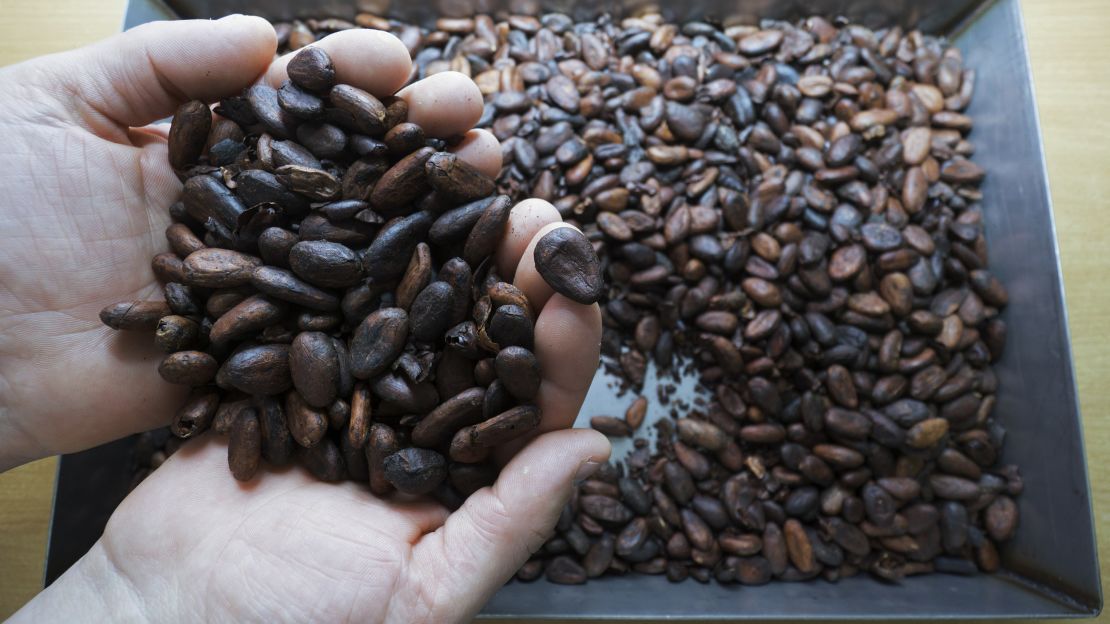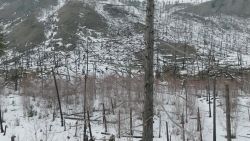Mondelez International, which makes Toblerone, Cadbury and Milka, is trying to protect its business from global warming by switching to sustainable cocoa.
Currently, Mondelez sources about 43% of the cocoa for its chocolate brands through its Cocoa Life program, which provides educational and financial support to cocoa farmers in order to improve crop yield. Mondelez pledged this week to raise that figure to 100% by 2025.
For now, Mondelez’s chocolate brands are the only part of the business that is participating in Cocoa Life. But the company eventually hopes to make all of its products — including Oreo, Chips Ahoy and Tate’s — with sustainable cocoa.
Companies — and investors — are becoming increasingly aware that climate change is a massive business risk. Business leaders and experts surveyed by the World Economic Forum recently said extreme weather, migration caused by climate change and natural disasters are the three risks they’re most likely to face in 2019.
Climate change is “clearly something that we need to pay significant attention to,” Mondelez CEO Dirk Van de Put told CNN Business. Over the past several years, Mondelez has seen more variability in crops and unexpected cost inflation driven by climate change, he noted. Last year, Mondelez earned about $26 billion in net revenue.
For Mondelez (MDLZ), the problem lies in its supply chain. Without a “good source of quality cocoa … we can’t have a healthy chocolate business,” Christine Montenegro McGrath, the company’s chief sustainability, well-being, public and government affairs officer, told CNN Business.

Mondelez launched Cocoa Life in 2012 with a $400 million commitment over 10 years. The company noted in its 2017 report on Cocoa Life’s progress that according to some reports, countries currently making cocoa “may no longer be suitable for cocoa production in the next 30 years because of the threat of climate change.”
The company says it is pleased with the progress so far. It plans to increase that financial commitment until at least 2025 to help achieve its goals.
“I don’t think the work is done in 2025,” Van de Put said.
Deforestation is a particular problem in cocoa-growing countries like Côte d’Ivoire, Ghana and Indonesia, among others. It contributes to global warming and hurts cocoa crops, which need shade. Farmers also clear land to increase the size of their plots when they can’t earn a living off of their own farms — which are often failing, ironically, because of climate change.
Because Mondelez is such a big buyer of chocolate, it likely “did play a role” in contributing to deforestation, Van de Put said. “Not directly, but it is a consequence of how the whole supply chain came to evolve.”
Mondelez hopes to help put an end to this cycle (and make sure it always has access to cocoa) through Cocoa Life. The program focuses on teaching farmers sustainable practices, helping them raise money from local governments for their communities, distributing shade trees and making cocoa farming an attractive profession. Mondelez also hopes the program will encourage farmers not to use child labor by empowering women through business startup workshops and other initiatives, and trying to lift communities out of poverty.
The company also plans to use satellite technology to map out farms that supply the Cocoa Life program by the end of the year. The initiative is designed to help Mondelez make sure the farmers it works with aren’t clearing forests. Mondelez is also offering financial rewards to farmers who use sustainable farming techniques.
Deforestation threatens not just the planet and Mondelez’s business, but the company’s reputation, as well. Last year, GreenPeace linked Mondelez to the destruction of orangutan habitats in Indonesia, because of Mondelez’s use of palm oil sourced to that region. Palm oil is another important Mondelez ingredient that has been linked to deforestation. GreenPeace also said that “palm oil suppliers to Mondelez have also been accused of child labor, exploitation of workers, illegal deforestation, forest fires and land grabbing.”
Though palm oil is important to Mondelez, it’s not as crucial as cocoa. Mondelez says it’s a relatively small buyer of palm oil, which is also used for biofuel.
In response to GreenPeace, Mondelez said it has “eliminated suppliers from our supply chain that do not meet our standards and recently expelled 12 companies as a result of breaches.” The company added that “we agree with Greenpeace that suppliers are not moving fast enough to ensure their supply chain is sustainably sourced.”
Last week, the company announced that, in the future, its palm oil suppliers will have to improve product traceability, act against worker exploitation and more.
— CNN Business’ Ivana Kottasová contributed to this report.






















